Kid Ramos -Old School West Coast Blues By Matteo Bossi
A leading figure in West Coast Blues, Kid Ramos career started at least forty five years ago and it includes collaborations with some great artists like James Harman, The Fabulous Thunederbirds or The Mannish Boys and some elders like Floyd Dixon and Johnny Tucker to name just a few of them. Since the mid-Nineties he also started to put out a number of solid and inspired solo records. The latest one, which came out just months ago, “Strange Things Happening“, it is a gospel record on Sallie Bengtson’s Nola Blue label, recorded with some old friends like Brian Templeton and Stephen Hodges and his son Johnny Ramos. “It was a wonderful experience”, he says when we ask about it at the very beginning of our Zoom conversation. “Brian and I have done two records together, actually three if you count the Willie J. Campbell record we did…Willie J passed away a few years ago from ALS. Brian is a good friend of mine, we have done shows together, so this was a great opportunity and having my son on the CD as well was an extra benefit for me. It was a meaningful thing at the right time many new friendships have started because of this and new old ones have been reunited. Brian and I chose the material together and my son Johnny had some input as well. We have a lot of records that we listen to, so we kind of dug into some stuff that we thought would translate well into what we were trying to do. And everything came out really well, it was a live recording basically, everybody was in one room with no headphones, even the singers…we just let it go and in two days we recorded all the tracks. We rehearsed in my house one day, Brian, Dave Limina, Mike Turturro, Stephen Hodges and myself and my son. We went through this material and a day later we went to the studio. Than God it came the way it did and with a live feeling.”
Kid Ramos, interview
Dave Limina was a key player for this recording and he is a teacher at Berklee.
Yes, he’s dean of keyboard at Berklee School of Music and he played with Ronnie Earl for the last thirteen years, with Sugar Ray Norcia and other people in the Boston area. I had never met him before but Brian had told me about him, he said, “if we’re gonna do a gospel record we need to have Dave Limina”. I said, “Ok Brian, I trust you whatever you say”. It worked out, Dave’s schedule was open and everything fell into place perfectly.
You worked with Chris Lizotte as a producer.
We had mutual friends Chris and I and I had heard his name but I had never had any connection. We had a lunch meeting with Chris, James Rasmussen, myself and my son Johnny and they started laying out the idea for doing this record. They had done four or five other ones with different people and they explained that to me. It seemed a great idea. Since then we became really good friends and I’ve played with him in a few different churches where he appears as a guest, he had Marc Ford from the Black Crowes playing with him for a long time, now Marc is doing different things, he’s playing with Lucinda Williams I think. So Chris is a wonderful guy and he writes great songs. I had known James years ago, but I had not seen him. He reached out to me, it’s like a ministry that he does supporting musicians and putting together these recording projects. Then we reached out to Sallie from Nola Blue she was a fan of Brian Templeton and also myself and it just worked out really well.
How was recording with your son Johnny?
We have such a great time together, we have a lot of laughs, he’s wonderful to be around. We have such a great time and we have been doing some shows, we came to Italy, four or five years ago, we did the Summer Jamboree, we went to Norway…and we’ll do the Lucerne Blues Festival with the whole band in November.
We saw you there with Johnny Tucker some years ago..
Oh yes! His health isn’t so good these days but what a great guy Johnny Tucker. I met Bob Auerbach through Floyd Dixon, because he was a friend of Floyd. We became good friends and of course we did that record together. It was a special time, what an honor to do that work with Floyd, he was a character he was funny. He had an interesting life, those first records he made in the fifties he was still in high school! He wrote some great songs, he had a kind of hit with “Call Operator” and of course “Hey Bartender!” and stuff like that, but he was homeless at different times in his life. But what a great person. I had the opportunity to spend times with him and I had him over at my house for dinner a couple of times. A little over a month after we finished the project he passed away. He knew he was sick but I didn’t know how sick he was, the fact that he got that done, it was a blessing but it was the last thing he did.
It might be the same with Johnny Tucker, I mean the two records he did with Bob Auerbach’s help and yours.
Yes, it’s the same thing. He’s in a home now, he’s not doing great…so that was another good experience because Johnny is such a good soul. Really a great guy. And Bob has retired too, he married a couple of years ago and he has moved out of state, he is living in Oregon. He seems happy but he just stepped back from music. You know, the music business is tough. And I’ve seen it change quite a bit. Back in the ‘80s it was a whole different thing. It was a vibrant scene, a lot going on…then the internet changed everything I think. And a lot of people passed away, James Harman, Randy Chortkoff, Lynwood Slim…a lot of people I was involved playing music with are not here anymore, Richard Innes, Larry Taylor, Juke Logan, all of them are gone.
It was for sure a different era, I guess you were able to catch live on stage some of the greats.
Yes and it made a huge impression on me. I got to see Muddy Waters, Albert King, Freddie King and B.B. King in small clubs, I got to perform with Big Joe Turner and back him up with the James Harman Band. These guys were still around back then and for me it was a learning experience, I was on a mission. I had access to a place that was very close to where I lived, I could drive there and go see all these people. It was called the Golden Bear, I got to perform there with Harman in the early Eighties. But it’s long gone now, they knocked it down as they do here. What’so beautiful about Europe is you see all these wonderful historic buildings and churches, in the USA they put something new up and knock everything down.
What about Harman, how did you meet?
Well, meeting James Harman was a very big step for me, he changed a lot of things. James was twelve years older than me and I was twentyone years old when we first met and he basically took me under his wing. He started playing records for me and making me cassettes tapes I would listen of all kinds of blues and I eventually joined his band. That was really my education. And of course Hollywood Fats coming into the band, and Willie Campbell, Gene Taylor, Junior Watson… I was around all these people in my early twenties so there was a lof influence, it was a different way to learn things.
You did six or seven years with James, formative years in a way.
Yes, my education, like I said. I had been in bands and performed in clubs before I met James, but I was looking for the right people to be in a band with, somebody who was into the same music…it was very difficult. When I met him he had Willie in the band, Stephen Hodges and Gene Taylor, these guys were really established and they were playing the music I was aspiring to be doing. I was fortunate. At that time there were a handful of white bands playing that music, like Roomful Of Blues, the Fabulous Thunderbirds in Texas, Rod Piazza and William Clarke, The Blasters…but we were playing also with punk bands or new wave bands on the same show, they were mixing things up, even the Red Hot Chili Peppers when they were starting out. It was a different combination. And sometimes we played shows with Pee Wee Crayton or Big Joe Turner…it was a great time for all that music.
Was it challenging to play guitar with a guy like Hollywood Fats? He passed away too soon.
Oh yes, he died way too young. When I met Fats he had already been in Muddy Waters band, Albert King’s band, he playd in Jimmy Witherspoon’s band or JB Hutto’s…all these famous blues people so he was miles ahead of me. I was just a kid and he was a seasoned pro when we were in James Harman’s band. For me to be able to be in a band with him, sharing the stage night after night it was a learning experience, that I could never recapture.
After those years with Harman you sort of took a break from music to start your family?
Yes, I was still playing but I wasn’t travelling very much…I was playing with Juke Logan and Janiva Magness and then Lynwood Sim. He was living in Minnesota and he moved back here, his mother was here, and I started playing with him a lot. I had a day job, I was working and of course me and my wife we got married and started a family. Then I joined the Thunderbirds in 1995 and I was in that band for seven years.
And the Thunderbirds in those years seemed like the Harman’s band.
Yes! A lot of the same people in that band, Gene Taylor, Willie J Campbell and even Stephen Hodges was there for a few, Jimi Bott from Rod Piazza was there…all California guys. I had met Kim in the Seventies when they would come through town I would go see them play. He sat in with the James Harman band one night or two. So when I joined the band it was a great opportunity, I remember in the first year I was in the band we did 200 dates.
You played with a lot of great harmonica players like Harman, Kim Wilson but also William Clarke or Charlie Musselwhite. What does it take to back an harp player?
Playing with an harmonica is different than playing with a horn section or by yourself, B.B. King or Freddie King those guys never really had an harmonica. But Sonny Boy Williamson, Little Walter or Big Walter it’s a whole different thing. To accompany an harmonica is a different way of playing. There’s people that do better than me but I’ve been fortuntat to play with these guys…it’s a different mindset, more chords and bass lines, you have to listen to Robert Lockwood and Luther Tucker, the guys that back those other guys up, there are a lot of great records to listen to, early Junior Wells too…although Buddy Guy and Junior Wells is very different than Little Walter. Everybody has their own thing. Probably Wilson is one of the best guys there is, you can’t underestimate Kim Wilson.
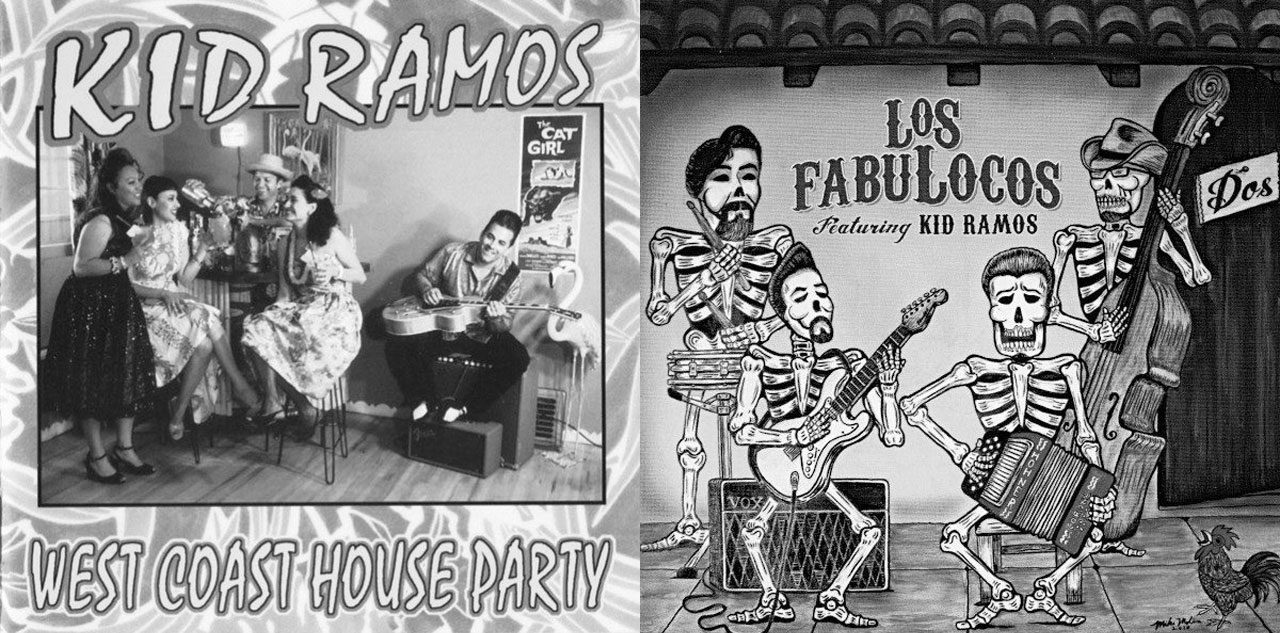
Around the time you joined the Thunderbirds you started doing your own records.
Yes I did one for Black Top and then several on Evidence. All of the records I made have been live in the studio, and almost every one of them has been two days of recordings and a couple of days of mixing. For the “West Coast House Party” there were so many people in the studio for that record, so many guests, Duke Robillard, of course the great Gatemouth Brown, Junior Watson, Rusty Zinn, Rick Holmstrom, Little Charly Baty…I had all these great guitar players and everybody wanted to be where Gatemouth was and it was really a house party, i had food in the studio…it was pretty hectic in some ways but it was really great, we were all in one big room with the horns in one side. I remember Gatemouth coming to the session, I tuned his guitar and amp he didn’t touch the amp or adjusted anything he just played. What a great time we had. That’s why I wanted to call it house party.
You also were involved in many projects with Delta Groove, the late Randy Chortkoff’s label, like the Mannish Boys.
I knew Randy for a long time. I knew him when he had no money and when he had money. He was a funny guy. We had some really good times. The fact that he put that record label together gave a lot of people an opportunity to travel and make records. Johnny Dyer of cours, I knew him since the Eighties, Finis Tasby, Bobby Jones, Leon Blue…Randy put together some great bands. Ha had Kirk Fletcher and Sugaray Rayford, Sean Costello, Mike Zito or Cedric Burnside…a lot of different people. And of course Los Fabulocos. I miss him. He was an enterpreneur and a hustler.
What about Los Fabulocos?
You know I had met Mike (Molina) and Jesse (Cuevas) when they were in The Blazers out of East L.A. Jesse called me and said “what do you think about playing in this band Los Fabulocos? And play Bajo Sexto”. “I’ve never played bajo sexto”, I said. “Oh, I’l’ll show you three chords and you’ll figure it out”. That’s what happened. Then I told Randy, “You got to record this band Randy” and he was “ah, I don’t know”. He didn’t really get it at first. But he agreed to it and we went to record it and David Z was there engineering it, he was on all kinds of Prince records, we did the first album and Randy loved it. So we did another one. I think they’re out of print now. But it was a great experience, I took them to Europe we played in Norway and just recently we played together a week ago in California. It was the first time in years and it was a great show, with The 44s, The Blue Shadows with Bill Bateman and John Bazz and Los Fabulocos. And I’ve known Bazz and Bateman since the early days of The Blasters.
You also played with Lester Butler.
Yes, Lester was great. I met him in the Eighties he was just a friend of Hollywood Fats, I didn’t know he played harmonica, he wasn’t in a band or anything. He was younger than me. Then he started calling me when he put together the Red Devils which were called the Blue Shadows originally with Bill Bateman and Johnny Ray Bartel. I played with them at King King on Monday nights and then they changed the name to Red Devils and soon after that they signed a record deal. I quit playing with them because I was recently married and it was too much, but that was a good band, I think Lester was really great. He had his own thing. A lot of the older guys like James Harman they didn’t get Lester Butler, what he was doing, but he was great. Another one gone too soon.
What about the Snake Snake band you put together?
It was a short lived deal, I was going to record that band with Evidence, Jerry Gordon came out to California to see us…then of course Lester died, so I had to do something different. That was the end of that.
Another friend of yours is Lynwood Slim, he was on some of your records too.
Oh I think Slim was on all of my records up until he passed away. Slim and I were really close, he was my best friend. I think he was great. We did the Big Rhythm Combo and he was on “Two Hands One Heart”, my first solo album.
Today for a young musician like your son the scene is very different than it was when you were his age.
Oh yes, I don’t know what they do, they don’t go out to see live music, ,it’s all in their phones, there’s not the live venues, the clubs, that there used to be in the Eighties. And when we play it’s mostly people my age, not Johnny’s age that are coming out. He does this other show and he tries to get young bands on the bill with him…but it’s hard to get young people out, they rather sit on their phone texting each other. Same with the records, you had to be part of the experience when you listened to a record as opposed to listen from a phone…it’s a different world, I tell my son I’m like the dinosaurs, I’m gonna go extinct. We used to talk about it all the time with Slim. It used to mean something to have a record deal but now you can make a record in your living room and people put records out every day flooding the market…everybody has to make money from the merch or if you go see a concert and it’s 200 dollars for a ticket. And the streaming services is pennies…I’m glad I came out in the time that I did, I don’t fit in this world as well as I did in the past.
Your parents were singers, so you’ve always been around music.
My mom was calabrese, you know, my grandparents were from Catanzaro, they came to the United States through Ellis Island. My mom was born here and she was a beautiful singer, she made people cry when she sang. She kind of gave up her career to marry my dad, the they split up and she met my step-dad who was a baritone singer, he was singing with the Metropolitan. They would go sing together and he played guitar too…he taught me my first chords on the guitar, he was a really interesting guy. So I was around music my whole life. Opera to me is beautiful, it is emotional, take Pavarotti…I didn’t appreciate it as a kid but later in life I did. It’s human emotions, people expressing what’s in their hearts, like listening to Hank Williams, Muddy Waters or Robert Johnson, if it’s good music and it’s coming from the soul I respond to it. I like to play records, depends on the mood, I like to listen to soul music, Sam & Dave, Sam Cooke or B.B. King…a lot of stuff, anything before 1966 is great! Not too much of today’s stuff, you kind of live in your own world you know. Kim Wilson used to tell me this all the time. All the old stuff that we listened to is the stuff that I gravitate to. My son listen to stuff I like but sometimes he goes “listen to this”, he’s up on everything, he’s a lot smarter than I am.
Do you already have plans for your next album?
You never know what the future holds, I take one day as it comes, I’m gonna be healthy hopefully and do more records. I’m gonna go and record with The 44s soon and we might do some other stuff with Brian, unfortunately he lives on the East coast and I live on the West Coast, but he’s coming out here in October.


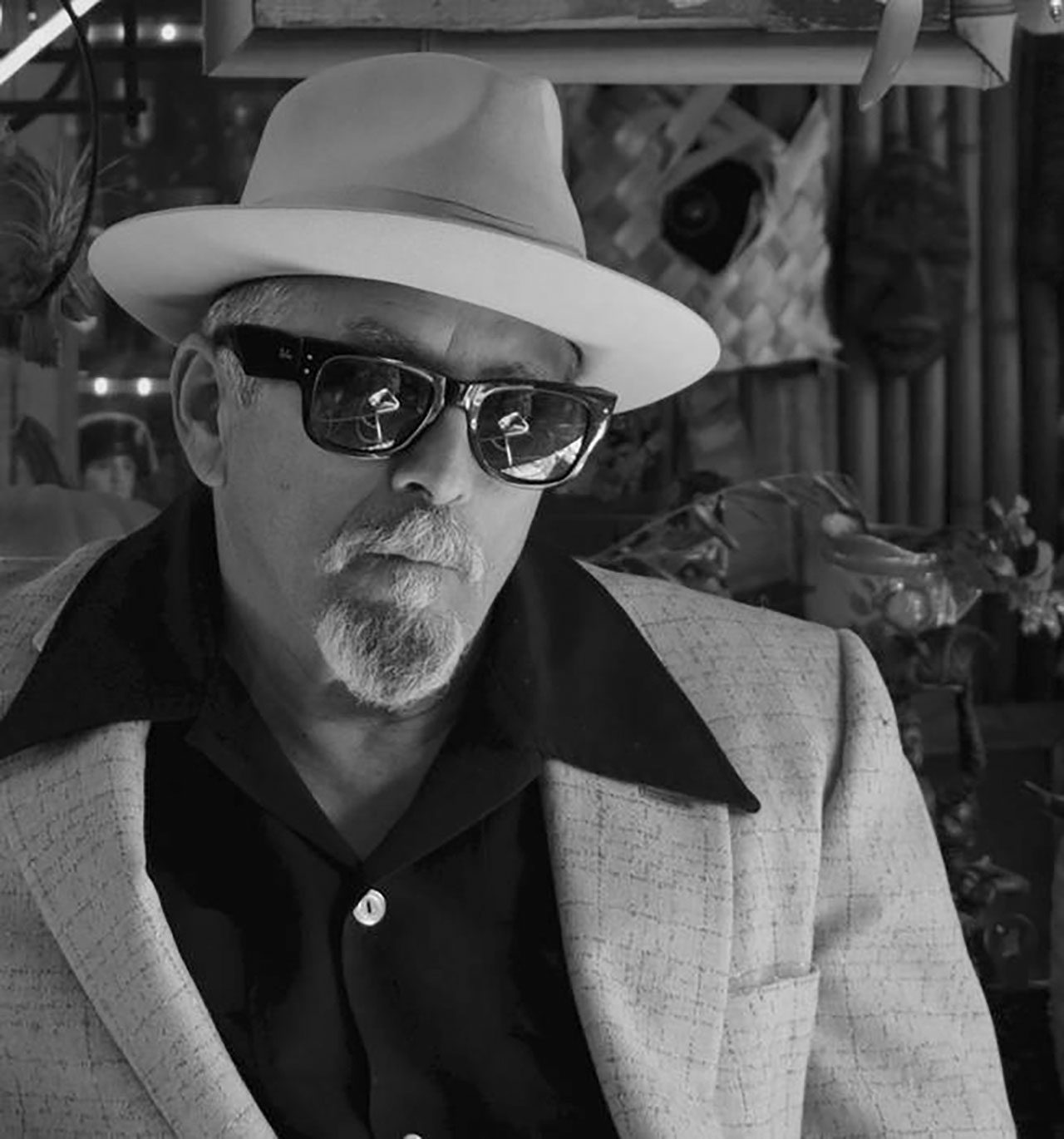


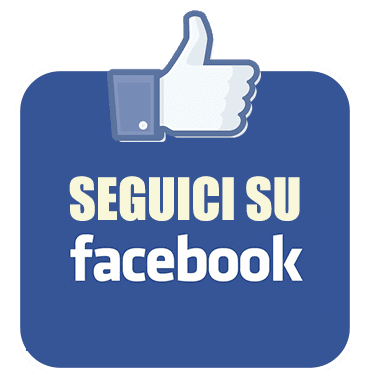
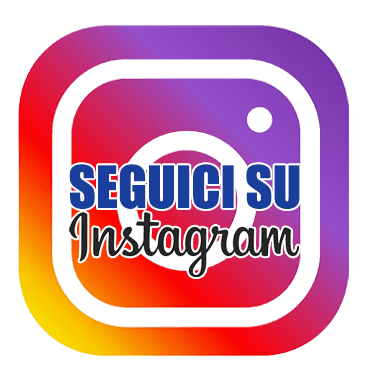

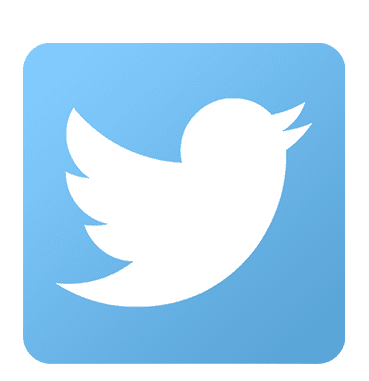

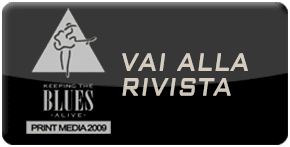
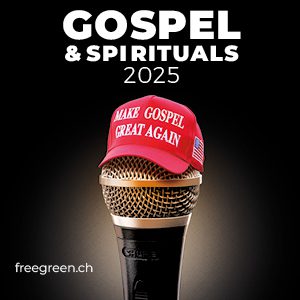
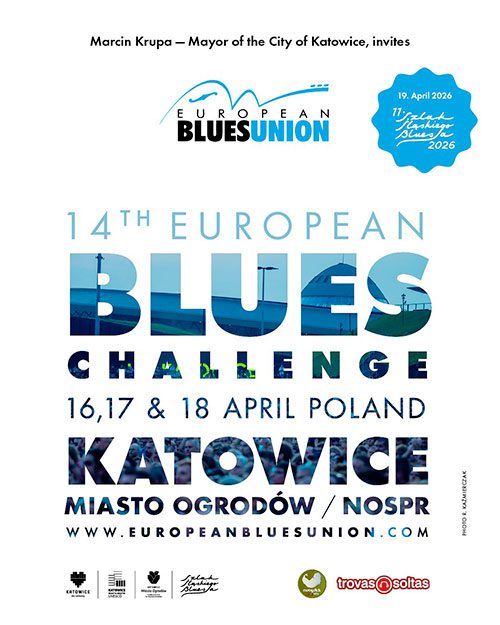
Comments are closed